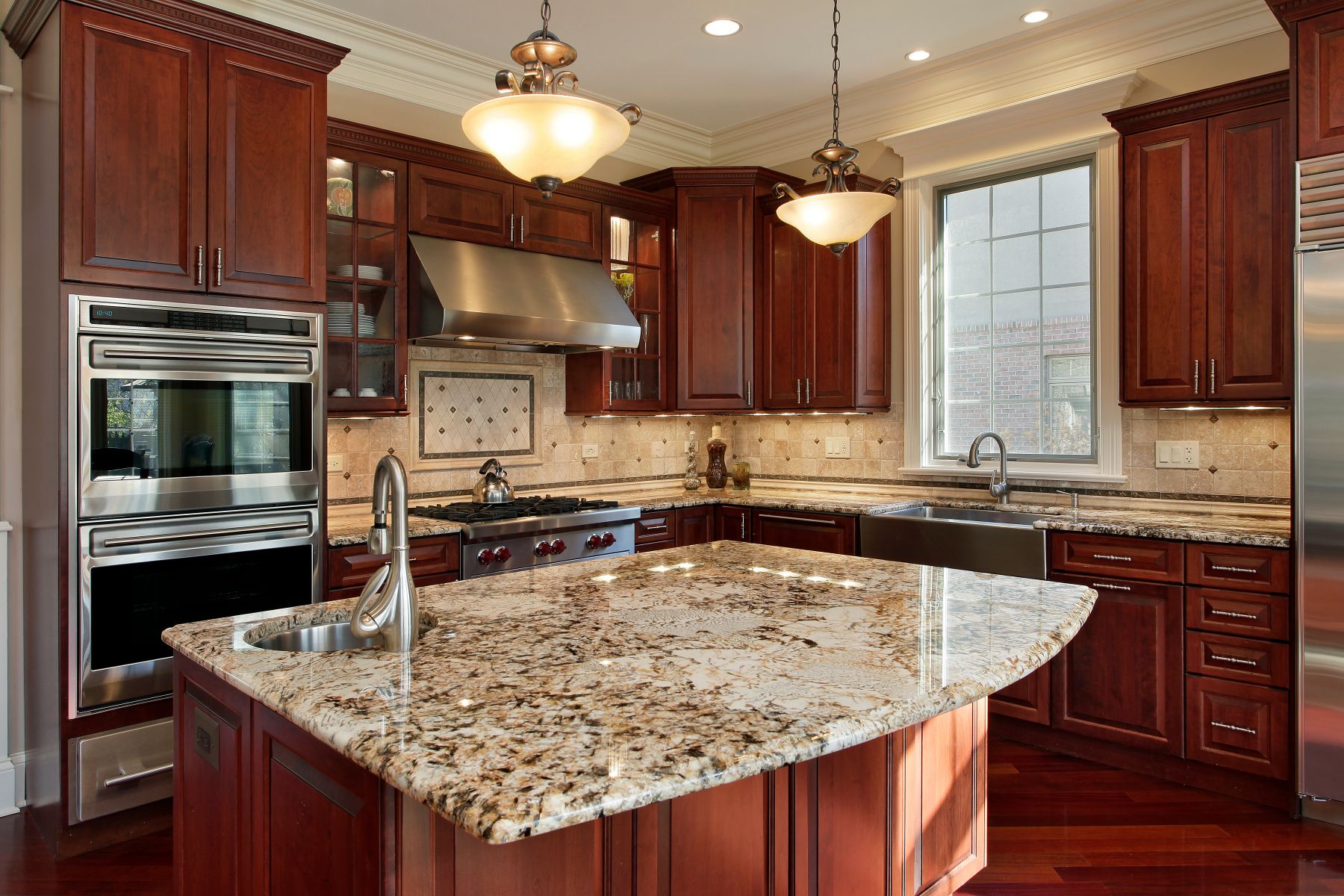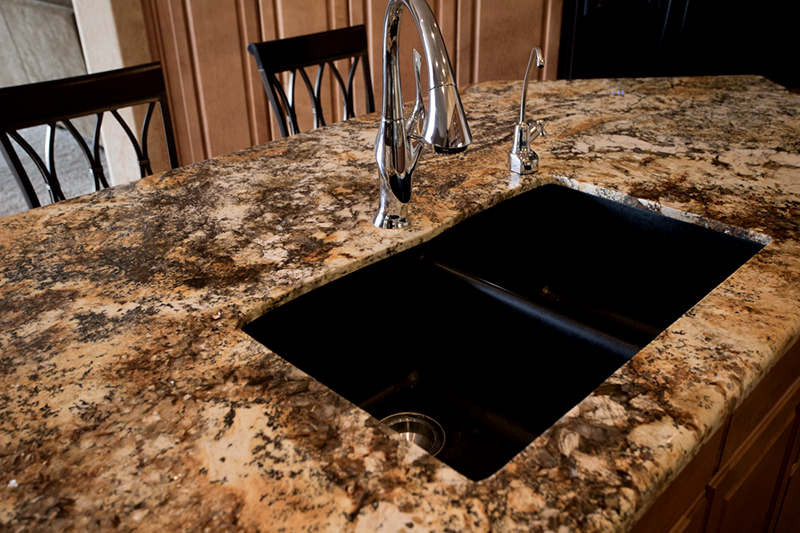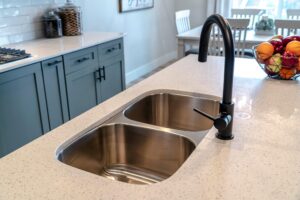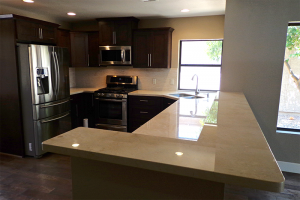Is Sealing Granite Countertops Necessary
Although most granite countertops do not necessitate sealing, it does aid in the resistance of the stone to dirt and spills, which can cause etching and staining.
Granite is naturally moisture-resistant, but it is also porous. Sealants prevent liquids from penetrating the granite. Liquids will bead on the surface of a properly sealed countertop.
Colored liquids such as grape juice, red wine, cooking oil, and fat can discolor the countertop. Pizza grease, which soaks through the bottom of the pizza box and onto the countertop, can also be a problem.
After installing the countertop, apply a sealer to the small areas where the faucets, sinks, and stovetops are located. It’ll be best if you did this before installing appliances because you won’t be able to reach these spots later – but seeping liquids will.
It would help if you sealed most kitchen granite countertops once a year. Keep in mind that the porosity of different granite pieces varies. Some countertop areas may require more frequent sealing than others. Dribble some water onto the countertop to see if it’s time to reseal it. Great if it beads up. If water penetrates the granite, it’s time to reseal.
Sealing is a simple process.
Get some clean rags, a good-quality granite countertop cleaner, and a granite sealer designed to resist water and oil-based stains. First, follow the cleaner’s instructions, making sure the granite is completely dry before beginning the sealing process. Some sealers, such as those with a solvent base, have a long shelf life.
Work in small areas when sealing and allow the sealer to absorb for the recommended time before applying the second application. Then proceed to another location. Before using the countertops will enable the sealer to dry for the recommended amount of time (usually several hours or overnight).
Before deciding on granite countertops, it is critical to understand the benefits and costs.
Most granite is stain resistant and does not “need” to be sealed. However, sealing is an extra precaution that many fabricators and installers advise. Granite Dude determines this and applies sealer as needed.
When manufacturing, a general rule is that if water darkens the stone, it requires a sealer.
Before sealing, it’s essential to understand the granite slab fabrication process. Resin coating coats the stone slabs with epoxy. This resin is used to fill voids, veins, and fissures. This method was created to make unstable stone sellable. The more frequently the procedure was used, the more familiar it became. To keep things simple, many fabricators apply resin coating to all slabs. When you combine a sealer with an unknown resin, the resin may become cloudy. It is one reason you should use a sealer sparingly. First, check with your installer.
What do you need to consider when sealing granite countertops?
When determining how frequently a new sealer is required for stones that need or would benefit from sealing, there are some variables to consider.
- How frequently is the countertop used
- How often is the granite cleaned?
- The natural stone’s absorbency (porousness).
- The previous sealer’s type and quality.
Many factory sealers last 10-15 years, whereas store-bought (DIY) sealers may only last 6-12 months. So it’s critical to know if you’ve previously used a sealer and what kind it was.
A simple water test can tell you if the sealer is required. Wet a few areas of the counter using a quarter cup of water. Watch how long the water takes to absorb. It must be sealed if water soaks into the stone in less than five minutes. If the water remains after 30 minutes, there is no need for a sealer. The stone may benefit from a sealer after five to thirty minutes.
Granite sealing is a relatively simple process that can be completed by either a professional or a homeowner. Before sealing, it is critical to understand the composition of your stone, so consult your fabricator and installation documentation to ensure you choose the correct product and sealing process. Call Granite Dude at (602)513-6886 if you have any questions about how often you should seal your granite.









